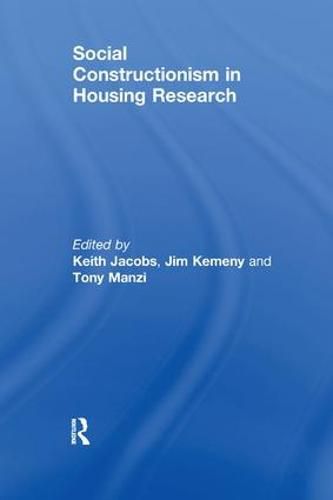Readings Newsletter
Become a Readings Member to make your shopping experience even easier.
Sign in or sign up for free!
You’re not far away from qualifying for FREE standard shipping within Australia
You’ve qualified for FREE standard shipping within Australia
The cart is loading…






By stressing the importance of subjectivity and interpretation, social constructionism offers a different conception of reality from the traditional approach to housing policy analysis. This book provides an up-to-date review of the social constructionist perspective and considers its philosophical basis. It discusses how social problems are constructed and, in turn, how this informs policy-making. It is divided into two parts. The first section is theoretical and discusses the variety of conceptual approaches utilised within the constructionist paradigm. The second part provides a number of empirically based case studies from the UK and Australia to illustrate the different methodologies that form the social constructionist corpus. The book also evaluates both the criticisms that have been made against the social constructionist perspective and the strengths and weaknesses of constructionist methods. It therefore contributes to the development of a future research agenda for social constructionist research in housing and urban policy.
$9.00 standard shipping within Australia
FREE standard shipping within Australia for orders over $100.00
Express & International shipping calculated at checkout
By stressing the importance of subjectivity and interpretation, social constructionism offers a different conception of reality from the traditional approach to housing policy analysis. This book provides an up-to-date review of the social constructionist perspective and considers its philosophical basis. It discusses how social problems are constructed and, in turn, how this informs policy-making. It is divided into two parts. The first section is theoretical and discusses the variety of conceptual approaches utilised within the constructionist paradigm. The second part provides a number of empirically based case studies from the UK and Australia to illustrate the different methodologies that form the social constructionist corpus. The book also evaluates both the criticisms that have been made against the social constructionist perspective and the strengths and weaknesses of constructionist methods. It therefore contributes to the development of a future research agenda for social constructionist research in housing and urban policy.